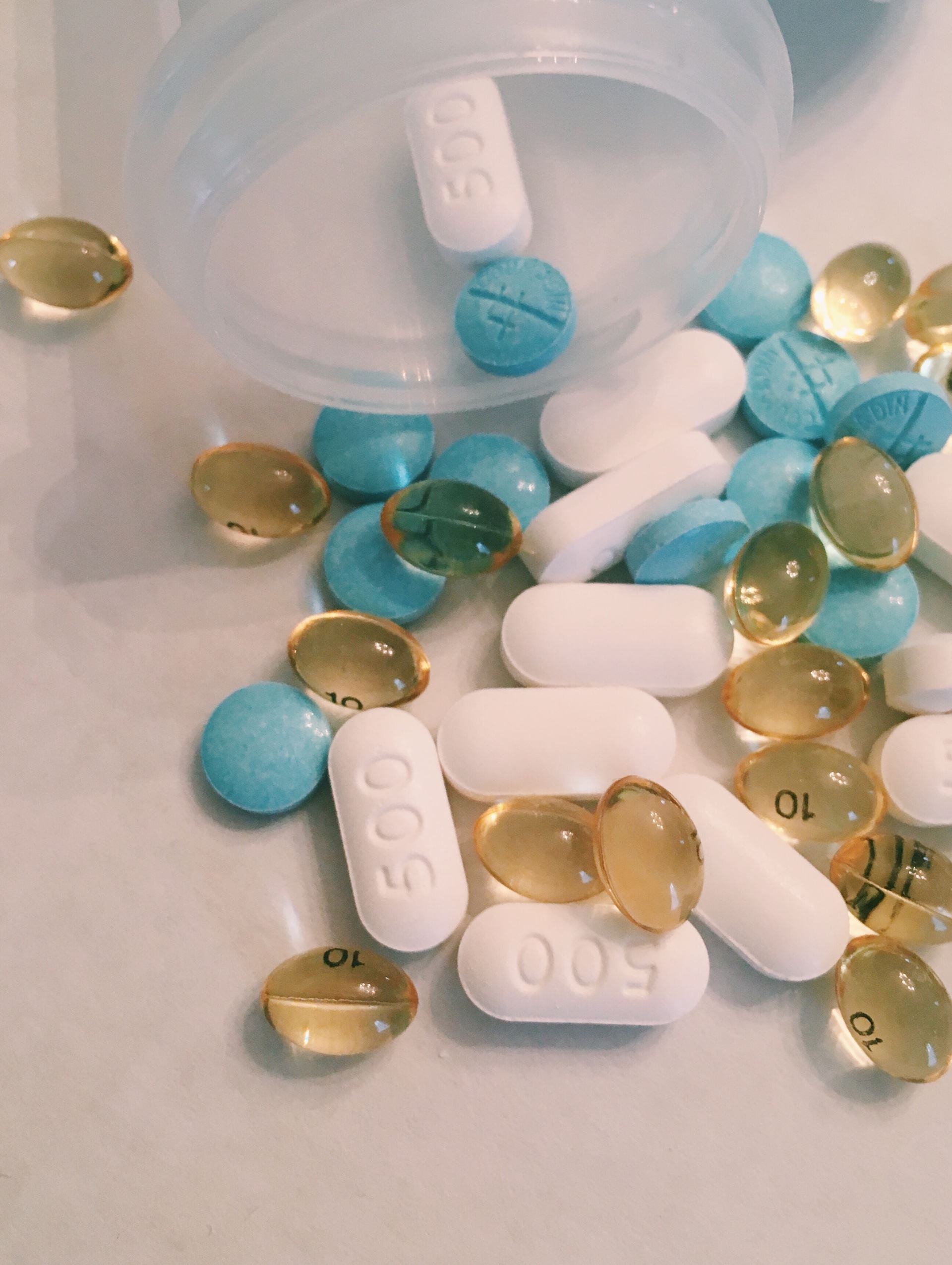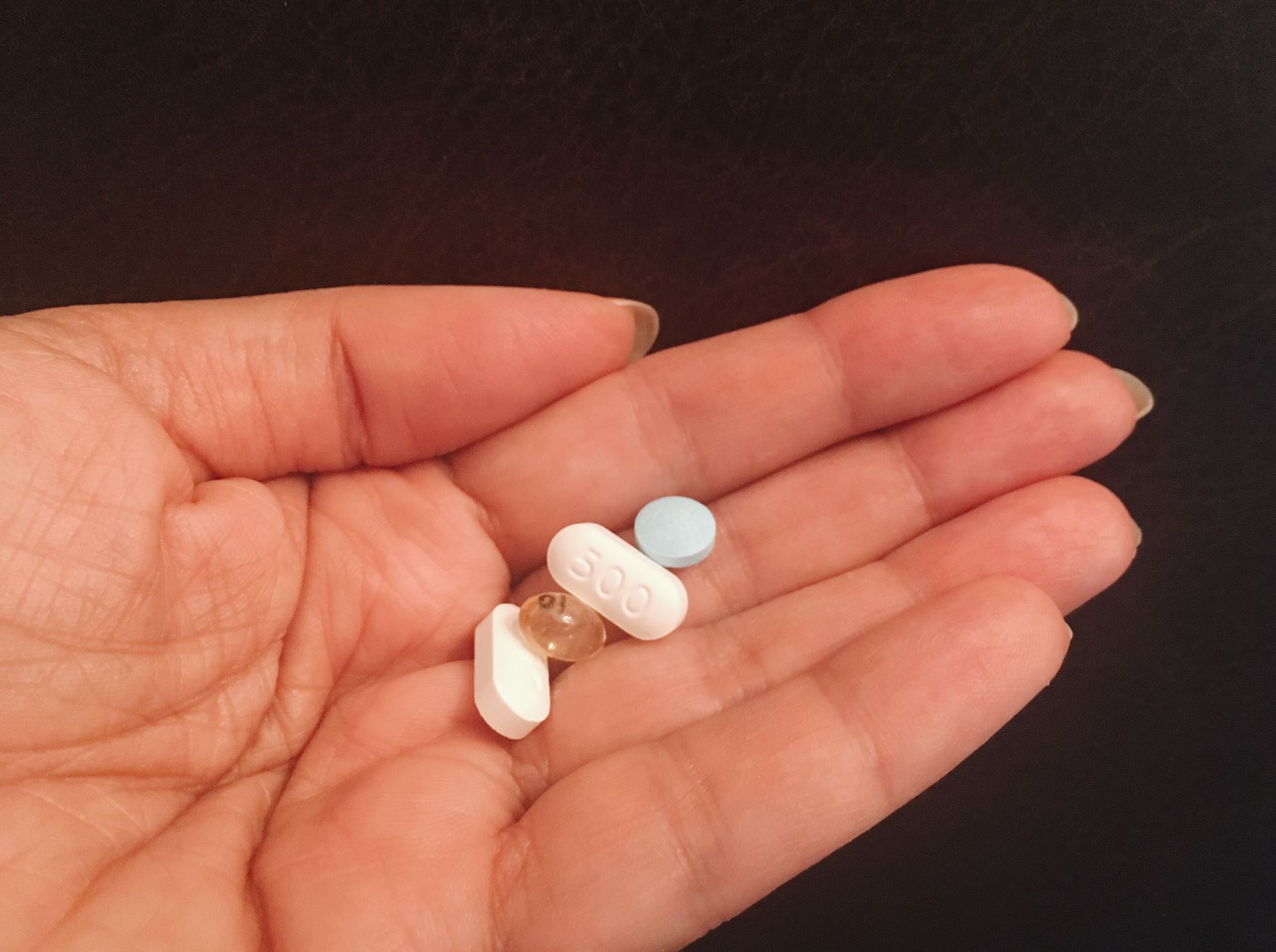Prescriptions
Repeat Prescriptions
Buckland Medical Centre
Patients who are on regular repeat courses of medication may be issued repeat prescriptions. Requests for repeat medication must be in writing and put into the surgery or you can order your repeat medication on line via the link at the top of this page – please ask at reception for an on line application form. Please do not ask for antibiotics that may need an appointment for via this Prescription link .
Please allow 48 working hours for processing the prescriptions.
Prescriptions can be collected from the surgery, sent to you in the post (provided you have supplied a stamped addressed envelope) or sent electronically to the pharmacy of your choice. Please ask at reception if you would like to know more about the Electronic Prescription Service (EPS).

Tara, the Droveway (only)
Patients who attend this surgery have their actual medication dispensed by the practice, not all medication is kept on the premises so it has to be ordered when required. You may be asked to return to the surgery to collect medication prescribed during your consultation with the Doctor or Nurse.
Regular Repeat Medication at Tara
Dispensed medication is available monthly without the need to re-order. Additional medication that may not be required on a regular basis can be ordered when required. Please allow 48 working hours for the prescription to be processed.
If you require medication in an emergency when the surgery is closed please call 111
Delivery Service at Tara
This service is available for elderly, infirm patients for repeat medication only - every four weeks on Wednesday morning. Patients are asked to complete a consent form for this service and must agree to be at home on the delivery day.
Inhaler recycling
Re-Hale :Recycle your used or unwanted inhalers - Tara Dispensary now has an inhaler recycling scheme - please contact the Dispensary for more details
Medication Reviews
Patients on repeat medication will be asked to speak to a doctor, nurse practitioner or practice nurse at least once a year to review these regular medications and notification should appear on your repeat slip or you will receive a text message reminder
Please ensure that you book an appropriate appointment to avoid unnecessary delays to further prescriptions.
Not Registered for Online Services?
Prescription Fees
Help with NHS costs
In England, around 90% of prescription items are dispensed free. This includes exemptions from charging for those on low incomes, such as:
- those on specific benefits or through the NHS Low Income Scheme
- those who are age exempt
- those with certain medical conditions
- More information is available at NHS Choices
NHS Charges
These charges apply in England only. In Northern Ireland, Scotland and Wales prescriptions are free of charge.
- Prescription (per item): £9.90
- 12-month prepayment certificate (PPC): £114.50
- 3-month PPC: £32.05
If you will have to pay for four or more prescription items in three months or more than 14 items in 12 months, you may find it cheaper to buy a PPC.
- Telephone advice and order line 0845 850 0030
- General Public - Buy or Renew a PPC On-line
There is further information about prescription exemptions and fees on the NHS website.
Prescribing Policy For Patients Travelling Abroad
This policy outlines the procedure for patients travelling abroad for short and long periods of time.
NHS Policy
By law, the NHS ceases to have responsibility for the medical care of patients when they leave the UK. In addition GPs are not required by their terms of service to provide prescriptions for the treatment of a condition that is not present and may arise while the patient is abroad.
The NHS does accept responsibility for supplying ongoing medication for temporary periods abroad of up to 3 months. However, if a person is going to be abroad for more than 3 months, then they are only entitled (at NHS expense) to a sufficient supply of regular medication in order to get to their destination, where they should the find an alternative supply of that medication.
Buckland Medical Centre Policy
Travelling out of the country for less than 3 months
For patients who inform us they will be out of the country for less than 3 months, we will provide sufficient medicines for an existing condition (e.g. asthma, diabetes…) for the period while the patient is away where it is safe to do so. Drugs that require frequent monitoring may not be prescribed where there are safety concerns. 1 months supply only will be issued for drugs normally available over the counter, such as paracetamol.
Travelling out of the country for more than 3 months
Patients who inform us they will be leaving the country for more than 3 months will be prescribed sufficient medication to enable them to make alternative arrangements at their destination (up to 3 months supply where safe to do so).
Patients and relatives should not seek medication for themselves while they are abroad as this constitutes NHS fraud.
Prescriptions for medicines in case of illness while abroad.
GPs will only prescribe NHS prescriptions in this case for exacerbations of pre-existing illnesses; E.g. antibiotics for patients who have frequent infections secondary to an underlying lung condition.
GPs may provide private prescriptions if it is clinically appropriate and they can be self-administered safely without medical assessment while abroad. These prescriptions are not free.
Patients should be aware that some drugs commonly prescribed in the UK may be illegal in certain countries and you should check with that countries embassy before you travel.
See NHS facts of travel abroad
http://www.nhs.uk/chq/Pages/1755.aspx?CategoryID=73&SubCategoryID=105
Low Dose Sedative for Investigations such as MRI Scans, CT scans, Dental appointments and Blood tests etc
Low Dose Sedative for Investigations such as MRI Scans, CT Scans , Dental Appointments and Blood tests etc
GPs are not regularly involved, skilled, trained or appraised in sedation skills.
Small doses of benzodiazepines such at 2mg diazepam are probably sub-therapeutic for most adults for any effective sedation. Conversely anxiolytics can have an idiosyncratic response in patients, and even very small doses can cause increased agitation in some subsets of patients.
A patient may take a sedative 'an hour' before their assumed procedure, to then attend the hospital to find their procedure has been delayed, therefore the timing of the anxiolytic being sub optimal.
All hospital consultants, both those requesting imaging and those providing it, have access to the same prescribing abilities as GPs. If a patient needs a certain medication to enable an investigation to go ahead such as an MRI, CT scan ,Blood test or Dental appointment they are just as well positioned to provide a prescription, either through the hospital pharmacy or a hospital FP10.
Sedated patients should be regularly monitored, and we have been made aware of a case where a GP-provided sedative was given, the patient not monitored, and subsequently had a respiratory arrest in an MRI machine.
The Royal College of Radiologists‘ own guidelines on sedation for imaging makes no mention of GP involvement or provision of low dose anxiolytics and stresses the importance of experienced well trained staff involved and the monitoring of sedated patients: https://www.rcr.ac.uk/sites/default/files/publication/Safe_Sedation.pdf
We maintain that we are not being 'obstructive’ but adhering to our duty of care to provide safe, consistent, and appropriate care for our patients. We have the full support of our statutory representative body, Cambs LMC, in this position.
Access to Tirzepatide ( Mounjaro - weight loss injection ) through Primary Care
As you will be aware, NHS England is making tirzepatide (Mounjaro) available in a phased approached over the next few years. NICE guidelines say that in order to gain access to tirzepatide (Mounjaro) on the NHS, patients must also be referred on to a diet and exercise support programme.
Although it has been announced that it will become available in primary care settings from Monday, 23 June (for a specific patient cohort) arrangements are being made to mobilise a provider of the necessary Behavioural Support for Obesity Prescribing (BSOP) that is specified in the NICE guidelines.
Until this service is in place in Kent and Medway, it is not possible to prescribe tirzepatide (Mounjaro) in primary care.
Please also note there is no provider of tirzepatide (Mounjaro) available under right to choose.
We are aware that this situation may be difficult to explain to patients. If you have any questions NHS England has produced answers to some frequently asked questions for patients, which are available on their website, along with more detail about weight management.
We will provide further information when it is available.
https://www.kmhealthandcare.uk/your-health/weight-management/mounjaro-availability
Page created: 19 July 2022


